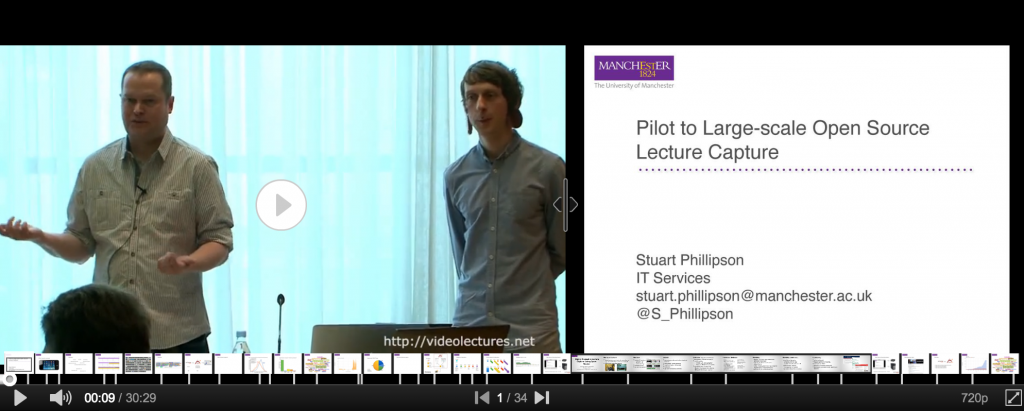I stumbled across an interesting talk from the transLectures workshop @ OCWC Global 2014 via the INSTTECH listserv (http://listserv.educause.edu/cgi-bin/wa.exe?A1=ind1406&L=INSTTECH). Stuart Phillipson and Andrew Wilson describe how they recently moved from an opt in to an opt out approach to lecture capture at the University of Manchester, and how their lecture capture service (using a combination of Opencast Matterhorn and Gallicaster) has scaled dramatically as a result.
I am not aware of any department utilizing DukeCapture that has an official opt-out approach, although some schools may be approaching defacto saturation just by virtue of the momentum capture is gaining. I am curious to know whether anyone at Duke has considered an official opt-out approach and what issues have come into play in such discussions.
The U Manchester talk generated a related discussion on INSTTECH about defining lecture capture’s impact for learners. Starting at 5:32 of this talk, Stuart references a study done at U Manchester that quantitatively demonstrates improvements in student outcomes for lecture capture. Another study was mentioned on the list that makes the same point just as clearly: http://autoaud.com/PressRelease/FECS08_StudentPerformance.pdf.
Thanks to Davon Orlic from University College London for the heads up on this interesting talk.

